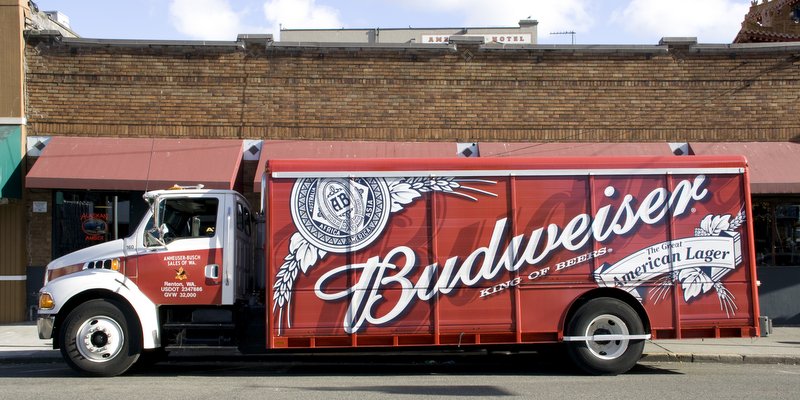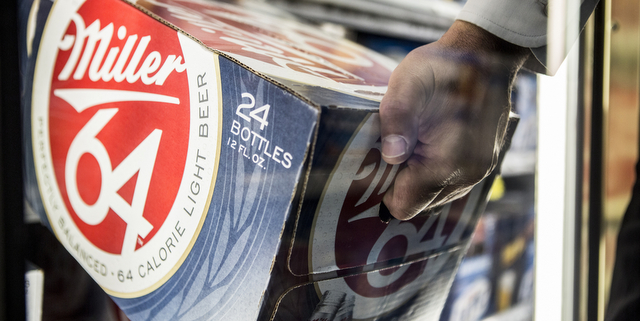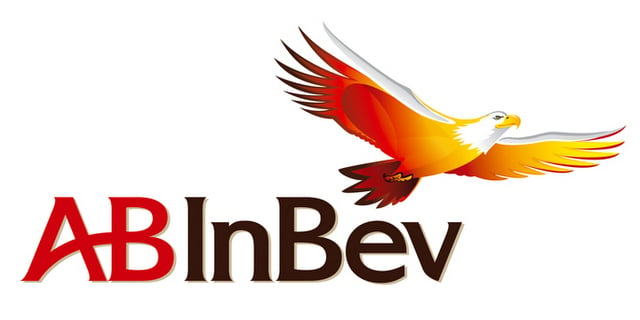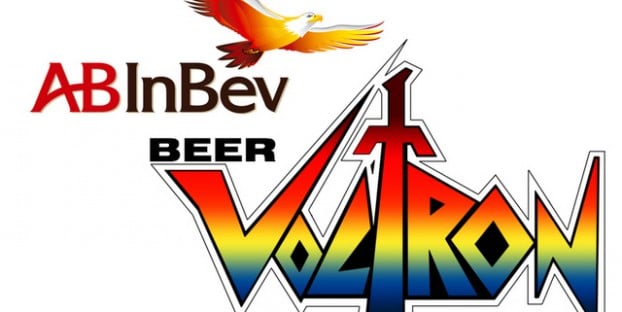
ABI/SAB acquisition: Maintaining independent distribution and consumer choice
One of several threats the transactions pose to this successful system relates to ABI’s relationships with distributors. Concerns have been raised that ABI is seeking to create competitive roadblocks by trying to impose exclusivity, either explicitly or coercively by discouraging its distributors from doing business with competing brands or raising their distribution costs.
Critics have suggested that ABI is pursuing two methods for preventing craft or imported beer brands from getting on a beer distributor’s truck and achieving the same economy-of-scale advantages that ABI and MillerCoors enjoy.
First, ABI is purchasing independent beer distributors at such a rapid rate that it is currently the fastest growing beer distributor in the country. Since 2012, ABI has purchased 12 independent distributors in nine states, and ABI-owned distributors are in states that currently represent more than 30 percent of the American beer market. These brewery-owned distribution operations (as opposed to independent distributors) limit the access to market for other beer suppliers, particularly independent craft brewers and importers, by imposing limitations on their options for distribution.
Recently, ABI has recognized the competitive concerns raised by these acquisitions. ABI has made several public statements about not increasing its ownership of distribution and acquisition of independent distributors. Several media accounts at the time of the merger announcement quoted North American Zone President Joao Castro-Neves as being comfortable with ABI’s current ownership of “around 10 percent” of distribution volume in the U.S. However, the details and nature of this statement remain undetermined.
Concerned parties also note ABI has been purchasing smaller competitors in the craft segment. Since 2014, ABI has purchased five popular craft breweries: 10 Barrel Brewing Co., Blue Point Brewing Co., Elysian Brewing Company, Golden Road Brewing and Virtue Cider. This followed ABI’s purchase of Goose Island Brewery in 2011. ABI’s purchases of craft breweries have included retail privileges in the form of taprooms, brewpubs and tasting rooms. Many of these retail privileges were granted as “tied-house” exemptions to help smaller brewers get established, yet are now extending ABI’s market power.
ABI’s justification for owning distributors is to better serve the market, but competitors argue that its purchase of competitors, combined with its distributor ownership, allow ABI to favor its own brands — craft labels and otherwise — compromising competition in the marketplace.
For obvious reasons, most brewers prefer to be represented by a distribution operation that is independent and not owned by a competitor; ABI-owned distribution operations focus on selling ABI-owned brands. In addition, it’s been charged that ABI pressures its independent distributors to sell its own brands, such as 10 Barrel, rather than independent, non-ABI products such as Deschutes, Yuengling, Dogfish Head or other growing beers.
Additionally, industry sources charge ABI with various “carrot-and-stick” business tactics that stifle the growth and future business opportunities of an ABI distributor that agrees to sell non-ABI brands or brands that ABI does not approve. These practices can increase costs for brewers and importers who then are forced to find less efficient distribution alternatives. That, in turn, can result in higher prices for consumers.
These practices were the subject of the Department of Justice’s 2013 lawsuit to block the planned merger of ABI and Grupo Modelo. ABI and Modelo’s original proposal called for a third party, Constellation Beer Brands, to hold the importing rights for a period of 10 years. This was an attempt to address market share concerns; at the time, Modelo brands represented only 4 percent of the U.S. market, significantly less than the combined market share reflected by the current merger proposal.
The DOJ investigation in the Modelo case reinforced concerns related to horizontal issues (i.e. increased direct market shares) for Constellation as well as efforts at that time by ABI to use vertical influence (i.e. influence at the distribution and retail levels) to reduce competition.
To resolve the DOJ litigation, the parties agreed to permanently sell the U.S. rights to Modelo, including its newest brewery in Mexico, to Constellation Beer Division. Additionally, out of concern that ABI would use distribution to curb competition by reducing access to market for other brands, the final order also prohibited ABI from discriminating against any distributor that carries the Modelo brands for three years. Specifically, when exercising its contractual right to approve or disapprove a proposed sale of a distributor operation, ABI is prohibited from weighing a distributor’s Modelo distribution rights as an “adverse factor.”
The DOJ also increased oversight of ABI acquisitions of independent beer distributors by substantially lowering the Hart-Scott-Rodino reporting thresholds for new transactions. Finally, the DOJ required that both a divestiture trustee and a monitoring trustee be appointed to oversee the competitive impact and progress of the deal, demonstrating the DOJ’s continuing interest in ensuring independence between the parties.
Current investigations of alleged anticompetitive practices
Given the potential negative impact on competition in the beer marketplace and on consumers, various ABI acquisitions and practices are currently being investigated by the California attorney general as well as the Department of Justice. According to numerous media accounts, these investigations include claims that ABI penalizes independent distributors that carry non-ABI brands or puts pressure on those distributors to sever existing relationships with competing brewers. DOJ also is investigating non-compliance with the final order of the Modelo case.
Potential control of commodity access and cost
An additional concern among many brewers and importers is that ABI’s increased global market power could position the new, larger company to have increased control over critical commodities markets worldwide. The acquisition could lead to increased market pressure for essential materials like hops, barley, rice and corn, as well as the aluminum and glass commodities, resulting in higher prices for consumers. A brewer with a relationship with ABI recently acknowledged a current hop shortage as well as strains on global commodities used to make beer.[4]





RT @BlackburnBrew: NBWA testifies for Congress on AB InBev/SABMiller merger https://t.co/jQ7UDknFlj via @craftbrewingbiz
NBWA testifies for Congress on AB InBev/SABMiller merger https://t.co/jQ7UDknFlj via @craftbrewingbiz
National Beer Wholesalers Association addresses the AB InBev/SABMiller merger with Congress https://t.co/9GfBXh7pdx https://t.co/E6RUpc9KS2
Earnest Harbin liked this on Facebook.
Leo Longoria liked this on Facebook.
NBWA testifies for Congress on AB InBev/SABMiller merger https://t.co/7nmypir9rR
Charlie Reeves liked this on Facebook.
Grist Mills liked this on Facebook.
Scott Strain liked this on Facebook.
Andrew Johnson liked this on Facebook.
Lou Harper liked this on Facebook.
ArcWest Architects liked this on Facebook.
Interesting insight https://t.co/OnF733Ejw2
Would it be possible to boycott the big boys in favor of better local brews?
National #Beer Wholesalers Association addresses the many perils of an AB InBev/SABMiller merger with #Congress https://t.co/xHViRWGHCz
this CANNOT happen
William Lane liked this on Facebook.
Jessica Harris liked this on Facebook.
Ohm Phansuea liked this on Facebook.
Jonathan Polanco liked this on Facebook.
Bill Hockett liked this on Facebook.
Serge Lubomudrov liked this on Facebook.
Sean Bjornstrom liked this on Facebook.
Wilson Bame liked this on Facebook.
Ricky Brown liked this on Facebook.
John Wanner liked this on Facebook.
Luke Gordon liked this on Facebook.
“National Beer Wholesalers Association addresses the many perils of an AB InBev/SABMiller merger with Congress” https://t.co/ni5F5KBuTx
Karli Olsen liked this on Facebook.
Katie R. Stouffer liked this on Facebook.
The Girl & The Vine: HOPS liked this on Facebook.
NBWA testifies for Congress on AB InBev/SABMiller merger https://t.co/IC6ZMLMDtp via @craftbrewingbiz
NBWA testifies for Congress on AB InBev/SABMiller merger https://t.co/VSUL7q4SU6
Jason Weihbrecht liked this on Facebook.
#CraftBeer #CraftBrewing #Beer #BeerBiz National Beer Wholesalers Association addresses the many perils of an A… https://t.co/yUgcTzRxQD
John Chadwick Eby liked this on Facebook.